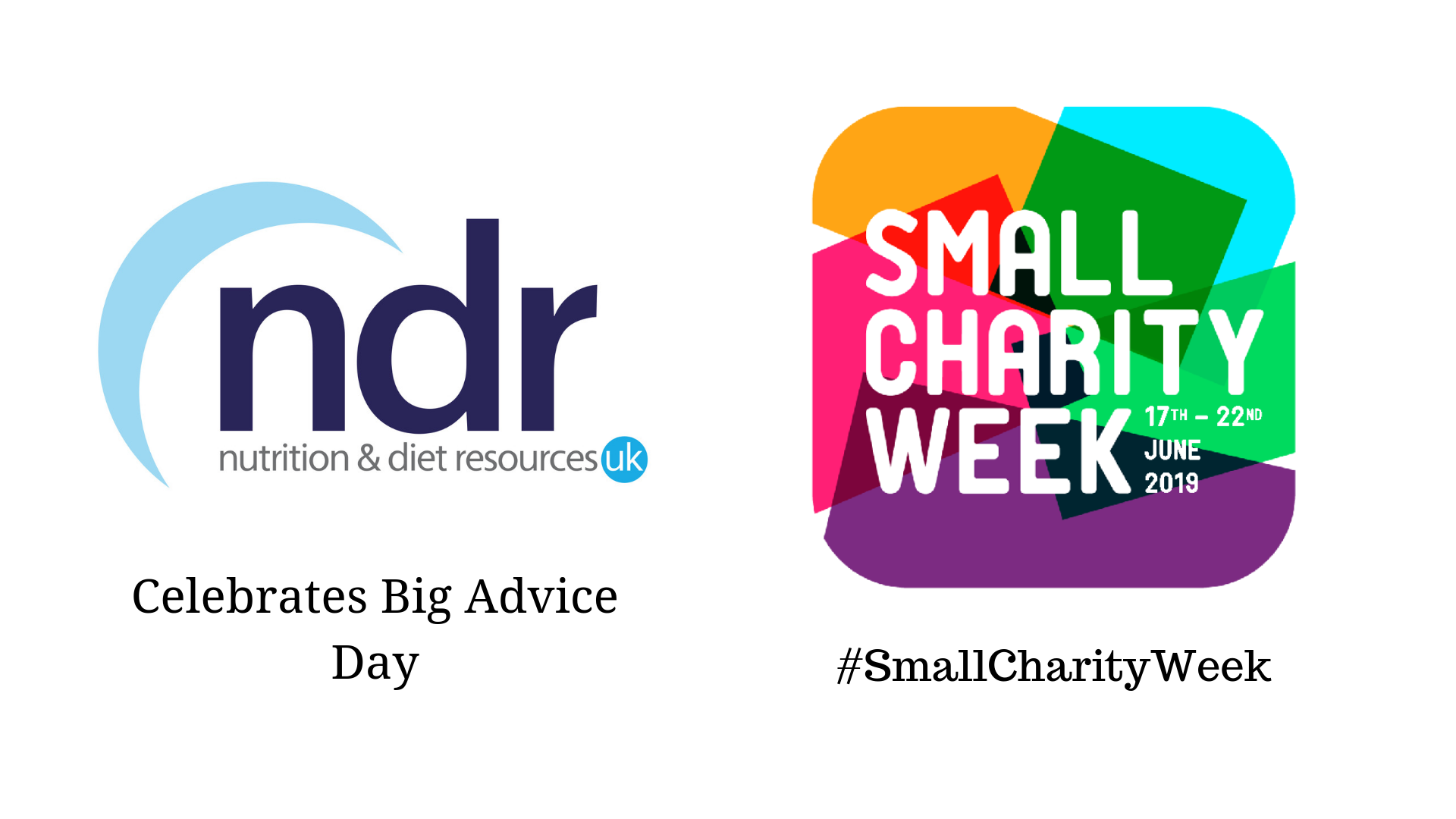Reflections from an Eight-Year Old: From SNDRi to NDR-UK

Published: 18.06.19
Nutrition and Diet Resources (NDR-UK) has just had its 8th birthday. Now an established charity, it’s been quite a journey since moving from a project based at Glasgow Caledonian University to becoming an independent third sector organisation. To celebrate Big Advice Day this #SmallCharityWeek, we wanted to share our story and lessons learned along the way.
NDR-UK was set up to take forward the work of the Scottish Nutrition and Diet Resources Initiative (SNDRi) in May 2011. The small team of four moved from being a project hosted within in a large organisation, Glasgow Caledonian University, with the full range of supporting infrastructure to being a new independent charity in a very ‘bijoux’ office without the safety net of a similar framework – the team swiftly had to form our own all-encompassing IT support! However, with NDR-UK moved forward with a clear mission “to improve personal health and well-being through the provision of expert nutrition and hydration information”. Our mission, coupled with a very supportive board of directors and an extremely knowledgeable Dietetic Advisor, meant that the team were able to hit the ground running.
Partnerships were crucial to the development of the new organisation, NDR-UK. We worked closely with the British Dietetic Association (BDA) Specialist Groups, set up new partners through Quality Meat Scotland, received commissions from the Lauren Currie Foundation, acted as a sales agent for Carbs & Cals and started working towards gaining NHS England’s Information Standard Accreditation. Our charity status was important in this partnership development for many reasons. As NDR-UK operate on cost recovery principles, our customers receive good value for money and as we do not have any sponsors, the information we provide is free from commercial bias.
However, as anyone involved in a small charity and (and in setting up a small business!) will know only too well, ensuring sustainability whilst remaining true to your principles is a challenge and will inevitably hit some bumps along the way. Less than six months after the start of trading, we faced some critical challenges and some cashflow issues forced NDR-UK to shift priorities and respond flexibly. This led to a cascade of changes to the team and how it operated, in order to focus on sustainability for the cause. Whilst some critical staffing and development decisions were required, this made the organisation much more resilient, smart about its business decisions and committed to continuing its work. With focused leadership, dedication and a very loyal and supportive network of stakeholders, expert volunteers and customers, NDR-UK began to thrive.
We took leaps of faith to build new media for communicating dietary messages: providing information in print and online; producing pictorial portion information for both adults and paediatrics; working closely with statutory agencies and third sector partnerships to develop and disseminate evidence-based dietary information.
We continued to strive to build and grow strong relationships with the dietetic community and related health and social care groups, working on evaluation projects, presenting posters, growing and engaging differently with our customer base, stakeholders and policy makers. We’re now rolling out NDR Prescribe (our electronic resource delivery service), working with NHS Inform to update dietary information on IBS, have an active presence on social media, and we are working in partnership with NHS services to directly share good practice throughout the UK.
As an eight-year old charity, we have grown and changed over our history but we remain ambitious and are looking for new opportunities and ways to engage with our network. We know that every small charity is unique and although we are unable to attend the Big Advice Day in London this year, NDR-UK would be keen to learn from other small charities, especially those in the healthcare sector and operating as a social enterprise. How has your organisation adapted to challenges over the years and what are your key priorities ahead?
